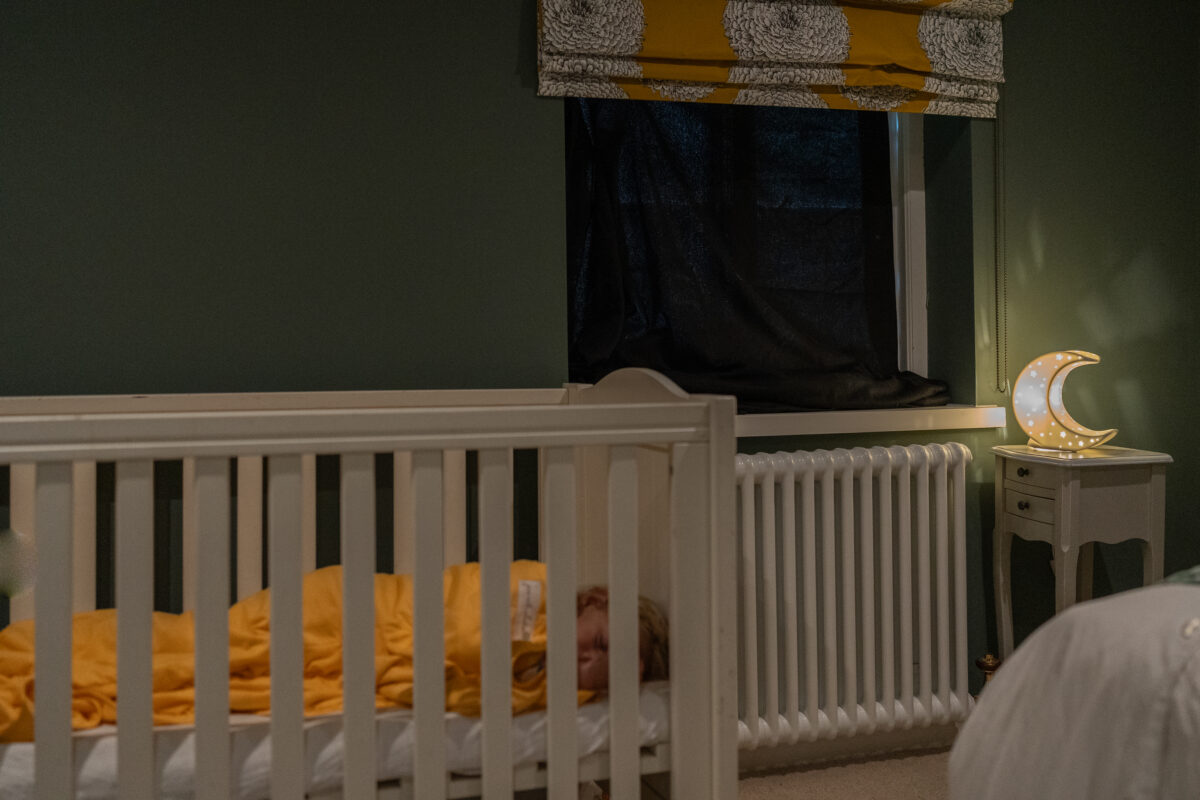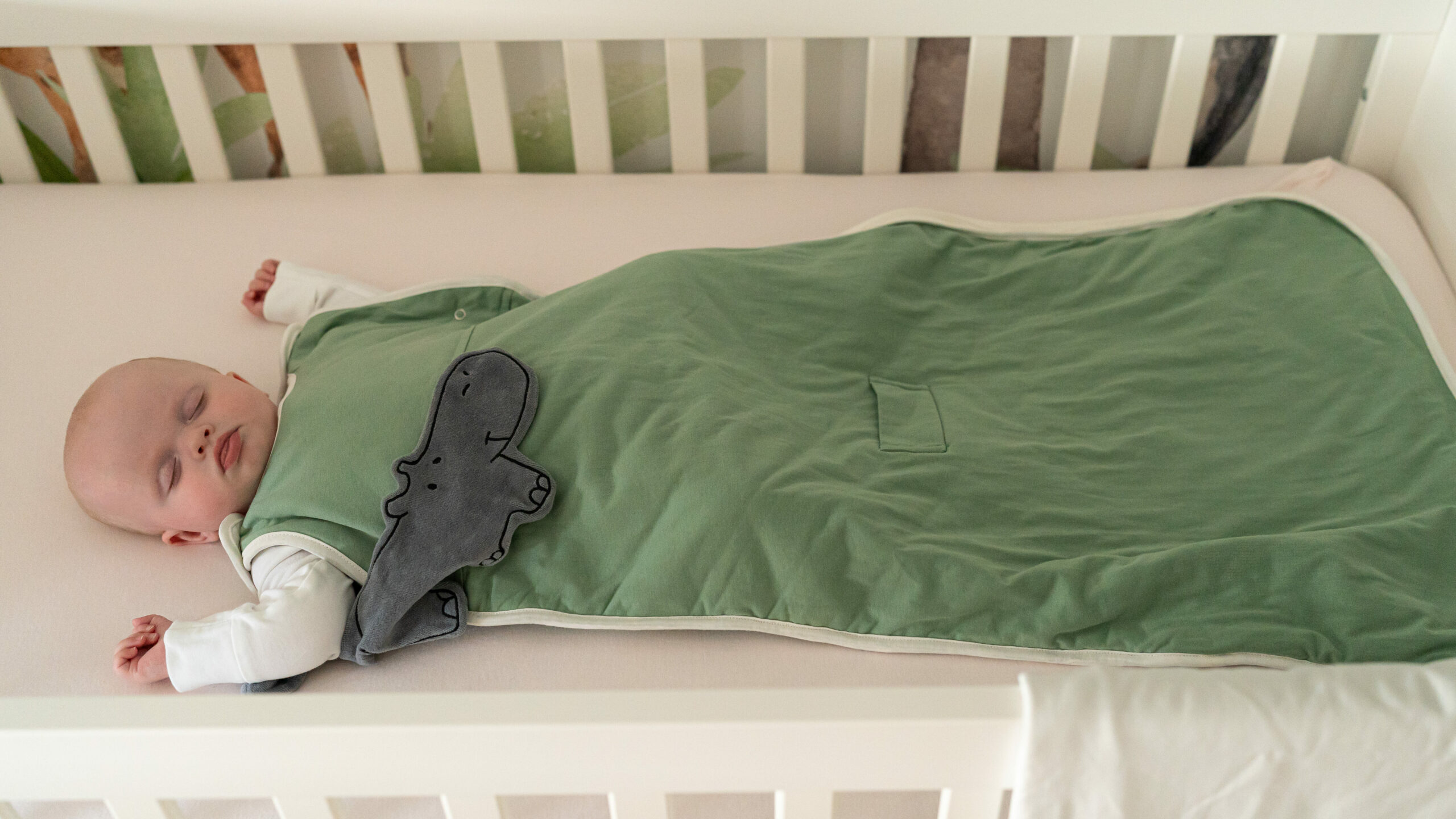
When the clocks go back in October most people will be enjoying an extra hour in bed. But if you’ve got young kids, the clocks going back can mean your baby will be waking an hour earlier than usual. If you’ve already got an early riser who wakes at 5.30, they’ll be waking up at 4.30 instead!!
Here are some tips to manage the clock change with babies and small kids to minimise sleep disturbance for the family (plus an exclusive discount on helpful sleep-promoting baby products at the end too!):
1: Adjust sleep times by 30 minutes a few days before the clock change
Push bedtimes back by 30 minutes 4-5 days before the clocks change. This way you’ll help their body clocks adjust gradually and hopefully stop your baby becoming extremely overtired (which could happen if faced with an hour adjustment in one hit). The aim is to get them sleeping 30 minutes longer in the morning before the clocks go back. They’ll then only need to adapt to another 30 minutes after the clocks change, and not a whole hour in one go.
To put it into context, if they usually wake at 5.30, and that suddenly becomes 4.30, that is a big change for babies and parents! So try to soften the blow to just a 30 minute change at a time. Be mindful that it takes 3-4 days for internal body clocks to reset to a time change so don’t expect them to adjust their sleep routine overnight. If you’ve got a very small baby consider doing this in three stages broken down into 20 minute chunks.
2. Adjust mealtimes too
Even if you don’t follow a strict routine, it’s a good idea to adapt your mealtimes in line with the later bedtimes. Try pushing them back a bit and if your baby gets hungry earlier than the new supper time, offer a little vegetable snack to stretch out the timings slightly.
3. Increase ‘downtime’ before bed
Little ones might be feeling a bit overtired as their bodies adjust to the new timings. You can increase the pre-bed wind down routine to help boost serotonin, relaxation and connection. This could be a slightly longer bath, an extra couple of bedtime stories or a longer cuddle (or all of the above).
4. Keep bedrooms dark
Make sure you have a good curtain or blind in their bedroom as the mornings will be getting light early again for a while. A stick on blackout blind can be really helpful for this. Don’t forget though that most portable blackout blinds are made from harmful PVC fabrics which give off nasty chemicals into their bedroom air – so choose an organic, natural blackout blind to maintain a healthy air quality inside.

5. Don’t re-enforce an early wake up and try to set morning ‘time goals’
If your baby starts waking up earlier than their usual time after the clock change (for example, they were waking at 6.30 and now it’s become 6), try to gently help them realise it’s not time to wake up yet. You can do this by keeping the lights off, keeping their sleeping bag on, not chatting or interacting, and delaying their morning milk feed until the new ‘time goal’ (for example 6.30).
If possible (if your baby’s happy doing so) keep them in their cot, or their regular sleep space, until the ‘time goal’ – you could try patting their bum or whatever method you usually use to support them to settle as this will signal to them that it’s still night time. My babies however have never been very patient at waiting in their cots in the morning so I tend to bring them into bed with me, with the lights off, and cuddle / pat them until it’s ‘time’ to wake up. All families have their own methods, so just do whatever works best for you. If you do bring them into your bed please make sure your bed is set up safely for bed-sharing. There’s lots of information on this on The Lullaby Trust’s website here.
6. Dressing your baby to optimise sleep
One of the most important considerations to helping babies sleep is making sure they’re a safe and comfortable temperature throughout the night. At this time of year it’s getting a bit cooler outside but most people haven’t turned their heating on yet. Bedroom temperatures will drop, particularly in the early hours of the morning, making it harder for babies to stay asleep if they’re not dressed correctly. A temperature regulating, 100% natural sleeping bag is best to ensure your baby maintains a comfortable temperature all night and stays cosy through the colder morning hours. Avoid sleeping bags with polyester filling as they’ll limit you baby’s ability to regulate body heat and will often result in little ones waking too cold, especially in the early hours of the morning.

7. Help set their circadian rhythm
Open curtains and get as much bright, natural light as possible during their first morning feed. This one’s tricky at the moment as it’s often still quite dark even at 7am! But when the clocks go back we’ll be getting a bit more morning light. Getting out and about straight after breakfast is also a great way to help set their circadian rhythms, leading to a more regular sleep pattern, so if it’s dark when you wake try to head out when the sun comes up for some natural light.
To help you manage the clock change this autumn, we’re offering
15% off our non-toxic blackout blinds and organic all-season sleeping bags
between now and 31st October. Use code CLOCKS15 at checkout.
